Photographs: Reuters Sudheer Pal Singh & Jyoti Mukul
Elattuvalapil Sreedharan, managing director, Delhi Metro Rail Corporation, is 79 years of age, but exudes the confidence and will of a sure-footed manager, committed to his work.
Known for implementing projects with precision, Sreedharan, in an interview with Business Standard, is critical of private developers and warns against their raising claims on the government in future. Edited excerpts:
The Delhi metro rail project has been criticised for the high capital cost and debt it incurred for construction. How far do you agree with this viewpoint?
Metro projects are highly capital-intensive. These projects by themselves will not be a business proposition, in the sense (that) they will not make profits.
It is a project in the social sector. In a large city, like Delhi which has a population of 16 million, there is no real good public transport system, except buses which are in chaos.
Running buses has been very costly for the government.
. . .
'Metro Man' Sreedharan blasts private contractors
Photographs: Reuters
The advantage of a metro system is that it is highly energy-efficient, reliable, safe and comfortable. The whole investment on a metro comes back to society in five years.
If you price all these advantages, according to a formula laid down by the Planning Commission, the economic rate of return is 22-23 per cent. The financial rate of return is very low, at around 3.5 per cent.
It essentially means a metro is not a financially profitable venture. This is generally the situation with metros the world over, though the story of Delhi Metro is slightly different.
DMRC has been constructed with around 60 per cent debt. Only 40 per cent investment is in the form of government equity. Yet, we are able to meet all our operating and maintenance expenses. We are also able to service and pay back the loan.
. . .
'Metro Man' Sreedharan blasts private contractors
Photographs: Reuters
What is the current outgo on account of debt repayment?
The loans had started from 1997 onwards, with a moratorium (on repayment) of 10 years. The actual repayment started from 2007.
But we are regularly paying the interest component of the loan, which is currently at 1.3 per cent. The outgo to the Japanese government is around Rs 250 crore (Rs 2.50 billion) annually, which we are able to meet entirely on our own, as we are not taking any subsidy from the government.
But we are not able to make provision for depreciation, which a commercial organisation must do.
What are you doing to address this?
We are building up a capital account which can be used later on for renewals. But that may not be adequate. We may have to go to the government later, to fund that replacement account.
. . .
'Metro Man' Sreedharan blasts private contractors
Photographs: Reuters
Of the overall revenue you generate currently, what is the percentage allocation to major areas?
Operation and maintenance expenditure accounts for roughly 48 per cent of the revenue we generate today. So, our operating ratio is 48.
We are ploughing back around another five per cent for expansion of the system. Also, around 45 per cent of our total income goes for servicing and repayment of the loan.
What has been your experience with public-private partnership (PPP) in the Airport Express Line, which has been delayed by over three months?
It has not been a very happy experience. In any case, we have done the entire civil structure ourselves, accounting for 60 per cent of the cost.
We could have also done the other 40 per cent. We could have taken a loan from Japan. And, by this, we would have got the project done at a much cheaper cost.
. . .
'Metro Man' Sreedharan blasts private contractors
Photographs: Reuters
Given a choice, would you have preferred to develop the line on your own?
Definitely. If we had done it, the cost would have come down by at least 20 per cent and the delays, too, could have been avoided.
The good thing we did was to complete the civil structures part of the line ourselves.
What came to your mind when the CMRS (commissioner for metro rail safety) rejected safety clearance for a project with which DMRC's name is associated?
It has dented the image of DMRC. The Reliance people are not carrying this bad image since they are doing it for the first time.
Delhi Airport Metro Express Pvt Ltd (a special purpose company set up by Reliance Infrastructure) can show their existence only when the metro starts functioning but we are helpless.
These are the problems of a PPP model. The PPP contractor has delayed the project. Even though a private party is funding 40 per cent of the cost, we have to do everything ourselves. We had to train and certify the staff.
We had to go to the CMRS for getting the sanction, answer queries. If we are doing everything for them, then why have somebody to fund only 40 per cent of the cost?
. . .
'Metro Man' Sreedharan blasts private contractors
Photographs: Reuters
There is a perception that getting clearance for the airport metro line has been difficult because the developer is a private company. In other metro lines, getting clearance is not a problem as DMRC is a government company. Is this correct?
Absolutely correct. We have done the civil works for the line, which is the stage at which most of the problems arise. Acquisition of land, rehabilitation of people and cutting of trees, for example.
The private party has only brought the trains and done other works like signaling. But even then, most of the things we had to do ourselves to commission it.
We had to train its people. If I can train his people, I would have trained my own people and put them in charge of operations.
. . .
'Metro Man' Sreedharan blasts private contractors
Photographs: Reuters
Metro systems are being planned across the country. Since you are against PPP, how do you think such high-cost projects can be funded by the government alone?
Three metros -- Bangalore, Chennai and Kolkata -- are being executed on the DMRC model, with the state and central government funding. The other two metros of Hyderabad and Mumbai are being done by private parties.
The Hyderabad metro has run into a lot of problems. The project report was given in 2003. Eight years have gone, no physical work has started. The Mumbai metro is running behind schedule. The private developers are also helpless in many ways. The land is not given to them.
They are not given the permission to fly over the Western Railway tracks. Had it been a government organisation, the sanction would have been faster.
Even in the privately developed metros, 20 per cent is viability gap funding from the Centre and the states are also funding in different ways.
It is simple common sense; metro systems cannot give 15-16 per cent back to any private party. The companies will end up making claims on the government and, ultimately, outflow will be much more.
. . .
'Metro Man' Sreedharan blasts private contractors
Photographs: Reuters
There is a concern that DMRC may have reached a plateau as far as tapping funds from multilateral agencies is concerned. Are you facing problems for Phase-III financing?
We have been discussing the method of funding for Phase-III with the ministry of urban development and the finance ministry. We have given three or four alternatives, like creation of an urban transit fund.
The basic understanding is that the two governments will have to meet 40 per cent of the cost as equity. The Japanese government has also been requested to fund at least another 40 per cent of the cost.
Of the remaining 20 per cent, around six-eight per cent DMRC will raise itself, through property development.
There may be a gap of 10-12 per cent, which could be filled in through market borrowing, or the issue of bonds. Or, we may request the Japanese government to increase their contribution from 40 per cent to 50 per cent.
. . .
'Metro Man' Sreedharan blasts private contractors
Photographs: Reuters
If 40 per cent funding from Japan does not materialise, will you approach other agencies?
For the time being, we are only approaching the Japanese government. If they do not agree, the best option would be to tap the local market. We find other lending agencies much more expensive.
We will not get a loan at 1.3 per cent interest from the World Bank or the Asian Development Bank. More, other agencies will not give us the long repayment tenure of 30 years which we get on the Japanese loan. This is very necessary for a project like a metro, which has a long gestation period.
Is DMRC also looking at a public issue to raise money?
This is one of the suggestions given to us by a consultant but I am not enthusiastic about it at this stage, because we have a lot of debt burden. We might do it later.
. . .
'Metro Man' Sreedharan blasts private contractors
Photographs: Reuters
Does the traffic volume on the system match your original projections?
No. We have fallen terribly short of the traffic projections. We are getting only around 50 per cent of the original projections.
But the revenue is not based on the number of people travelling in a metro. It is based on passenger-kilometer or how much a passenger is travelling. In that sense, we are not short of traffic projections. We are moving 1.5 million people every day, whereas DTC is moving double the number.
About 7-7.5 million people are moving by other modes of transport. DTC is carrying more passengers than the metro because the metro system covers only 184 km in the city, whereas the road system is something like 500 km.
We have not covered even two-fifth of the city requirements. We have two more phases with which we are going to cover at least two-third of the city.
Will there be a PPP component for one of the segments in Phase-III?
Not likely, because in phase-III, we do not find any particular area which would be highly profitable to attract the private sector.
Besides, Phase III includes only lines within Delhi city. Lines outside Delhi are generally funded by the respective state governments directly.

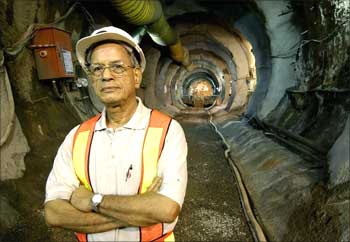
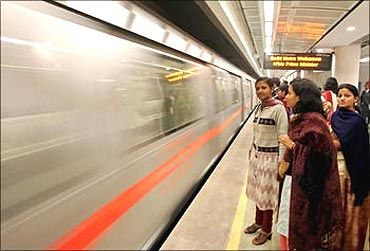
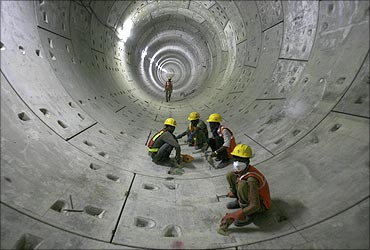
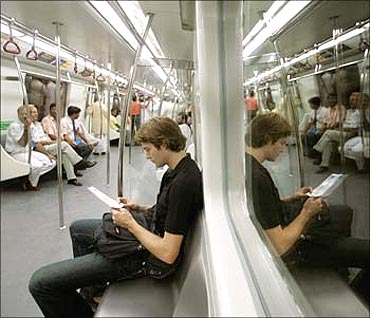
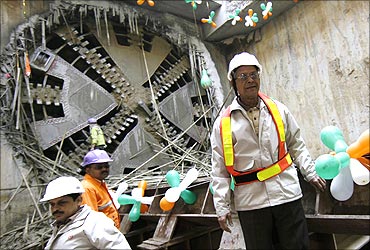
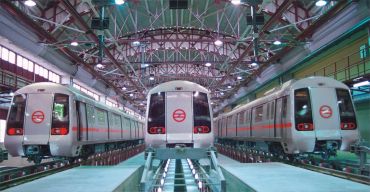
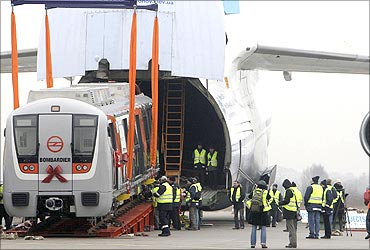

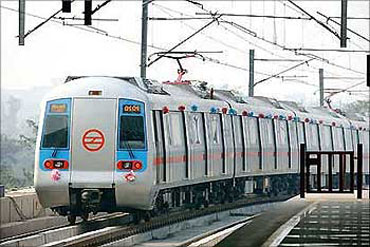
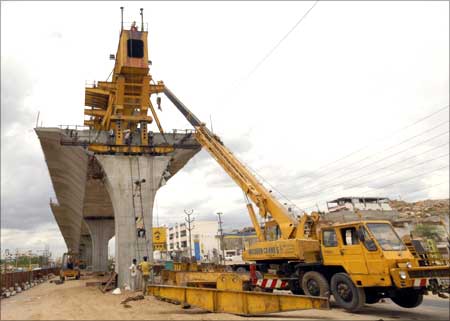

article